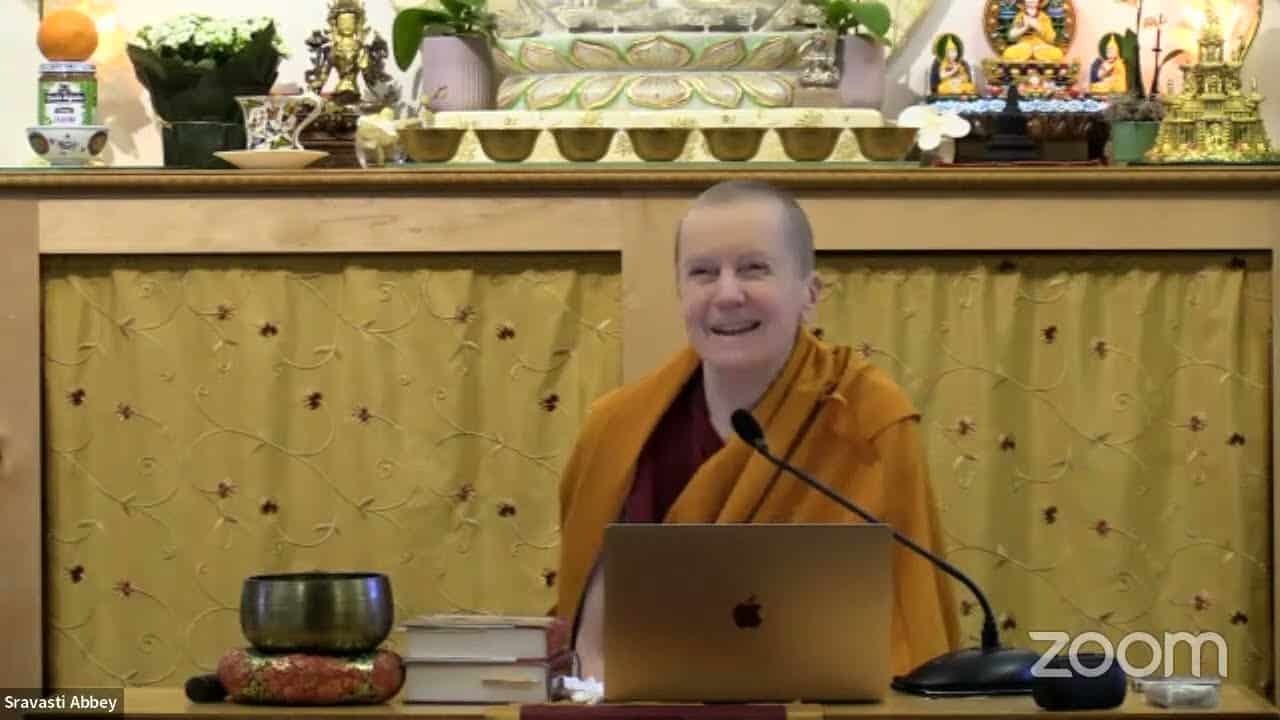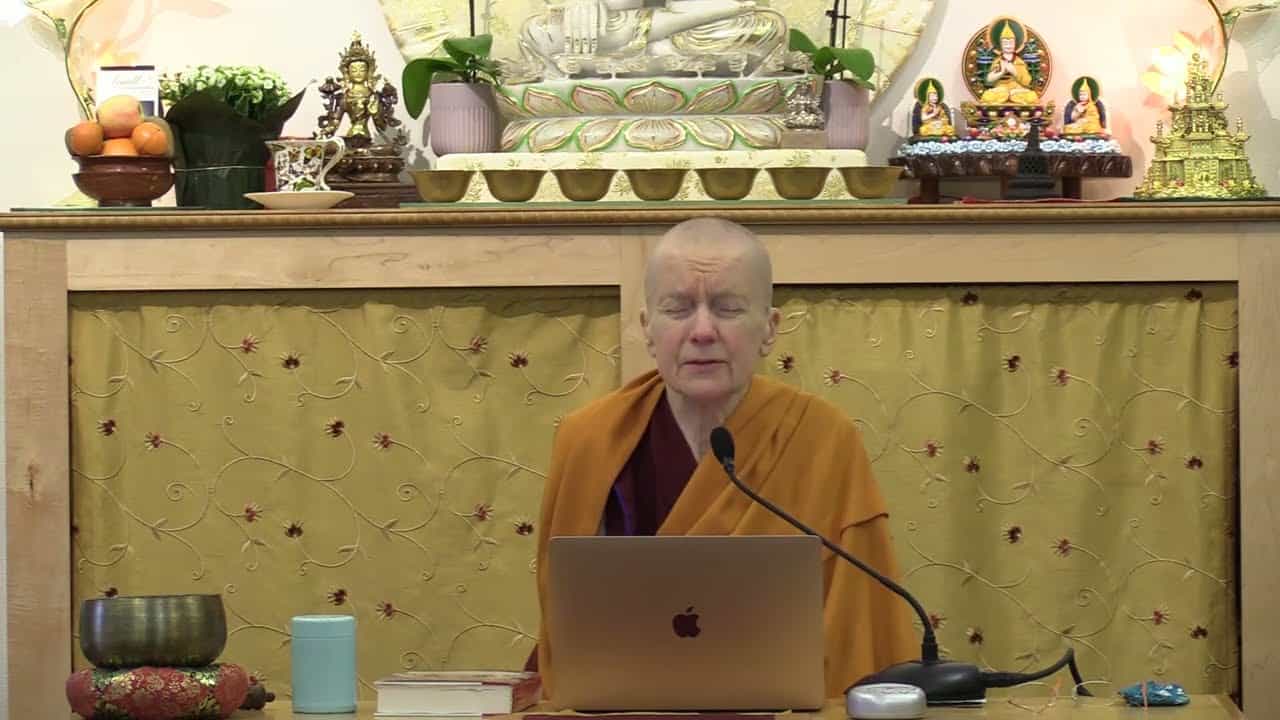Turning the Dharma wheel and buddha nature
126 Samsara, Nirvana, and Buddha Nature
Part of an ongoing series of teachings (retreat and Friday) based on the book Samsara, Nirvana, and Buddha Nature, the third volume in The Library of Wisdom and Compassion series by His Holiness the Dalai Lama and Venerable Thubten Chodron.
- How the two truths apply to the buddha nature
- Three turnings of the dharma wheel
- Four truths
- True cessations and true paths
- Emptiness of the mind and wisdom
- Subject clear light and object clear light
- Fundamental innate clear light mind and highest yoga tantra
- Explanation of the verses from Nagarjuna’s text
- Natural buddha nature and transforming buddha nature
- Explanation of the verse from Seventh Dalai Lama’s text
- Three characteristics of the clear light mind
- Free from conceptual elaborations, all pervading and not polluted by adventitious elaborations
- Three characteristics of the buddha nature
- Aspect of the mind that allows for Buddhas’ awakening activity to interact with the sentient beings
- Mind’s emptiness of inherent existence
- Seed that serves as the basis for the actualization of three buddha bodies
- Differences between sutra and tantra explanations
Samsara, Nirvana, and Buddha Nature 126: Turning the Dharma Wheel and Buddha Nature (download)
Contemplation Points
- Why does a correct understanding of the emptiness of inherent existence help us to develop compassion?
- What does the Buddha teach in each of the three turnings of the Dharma wheel and where does the practice of Tantra fit into the sequence?
- When the sutra says, “If you realize the nature of your mind, it is wisdom. Therefore cultivate thorough discrimination not to seek buddhahood elsewhere”, what does it mean?
- What are the three characteristics the Seventh Dalai Lama points to as the characteristics of that wisdom mind?
- As we reflect on these topics, these are very practical applications. Consider times, when you put yourself down. Now think of your natural and transforming buddha Nature, and the subtlest clear light mind that exists as an inseparable part of your mind. How does this act as an antidote to discouragement? How does thinking in this way encourage you to practice the path? How does it help you generate compassion?
Venerable Thubten Chodron
Venerable Chodron emphasizes the practical application of Buddha’s teachings in our daily lives and is especially skilled at explaining them in ways easily understood and practiced by Westerners. She is well known for her warm, humorous, and lucid teachings. She was ordained as a Buddhist nun in 1977 by Kyabje Ling Rinpoche in Dharamsala, India, and in 1986 she received bhikshuni (full) ordination in Taiwan. Read her full bio.


